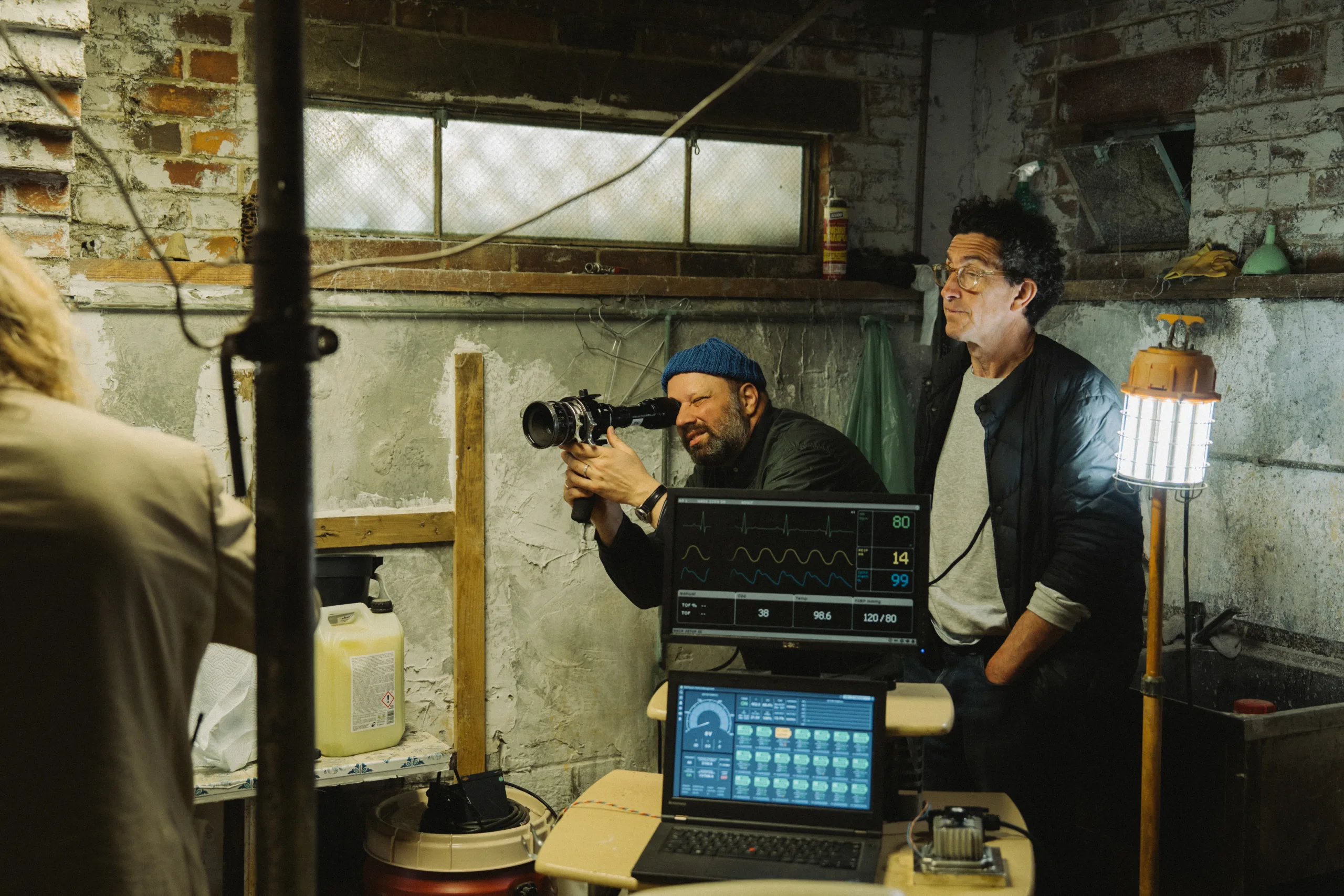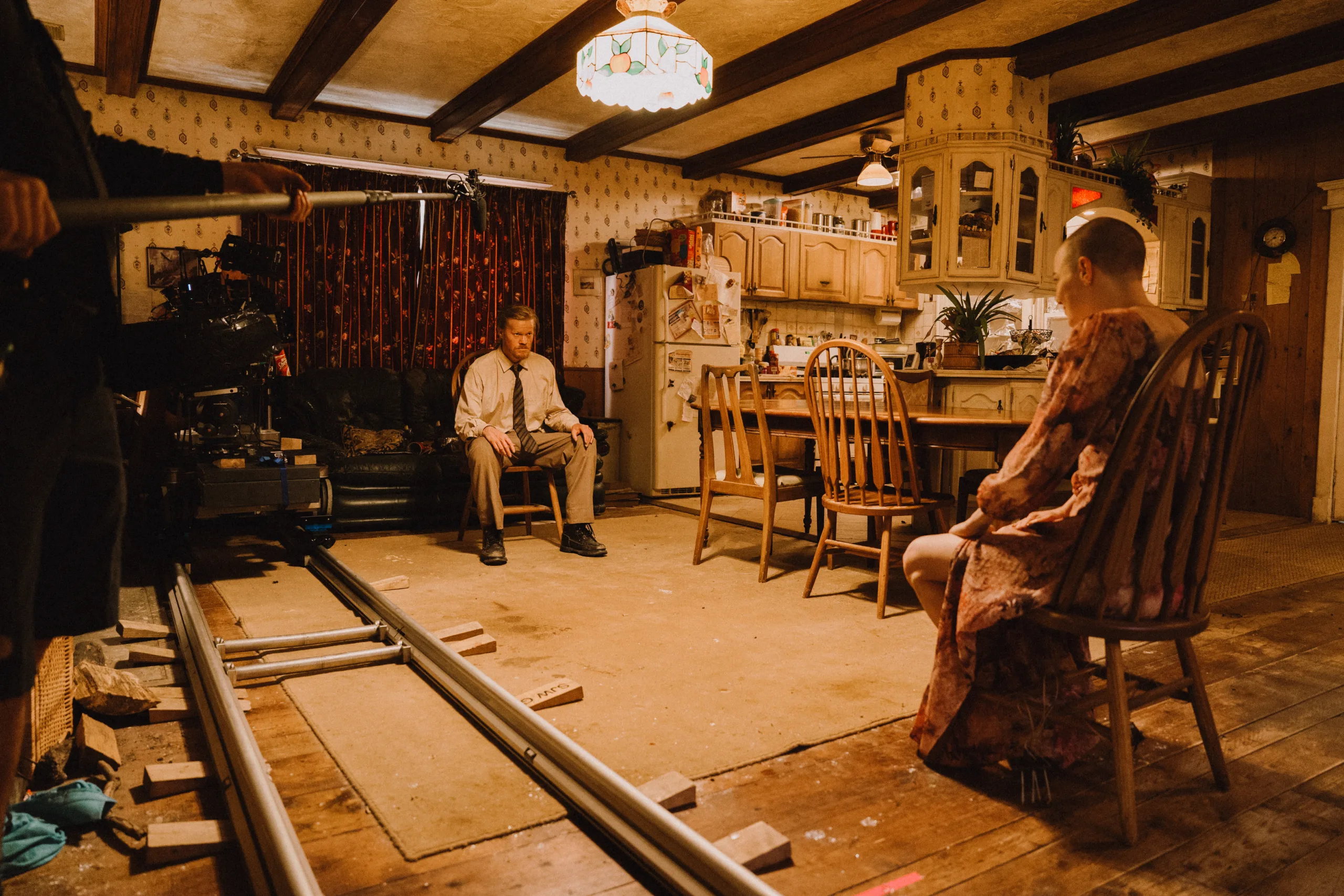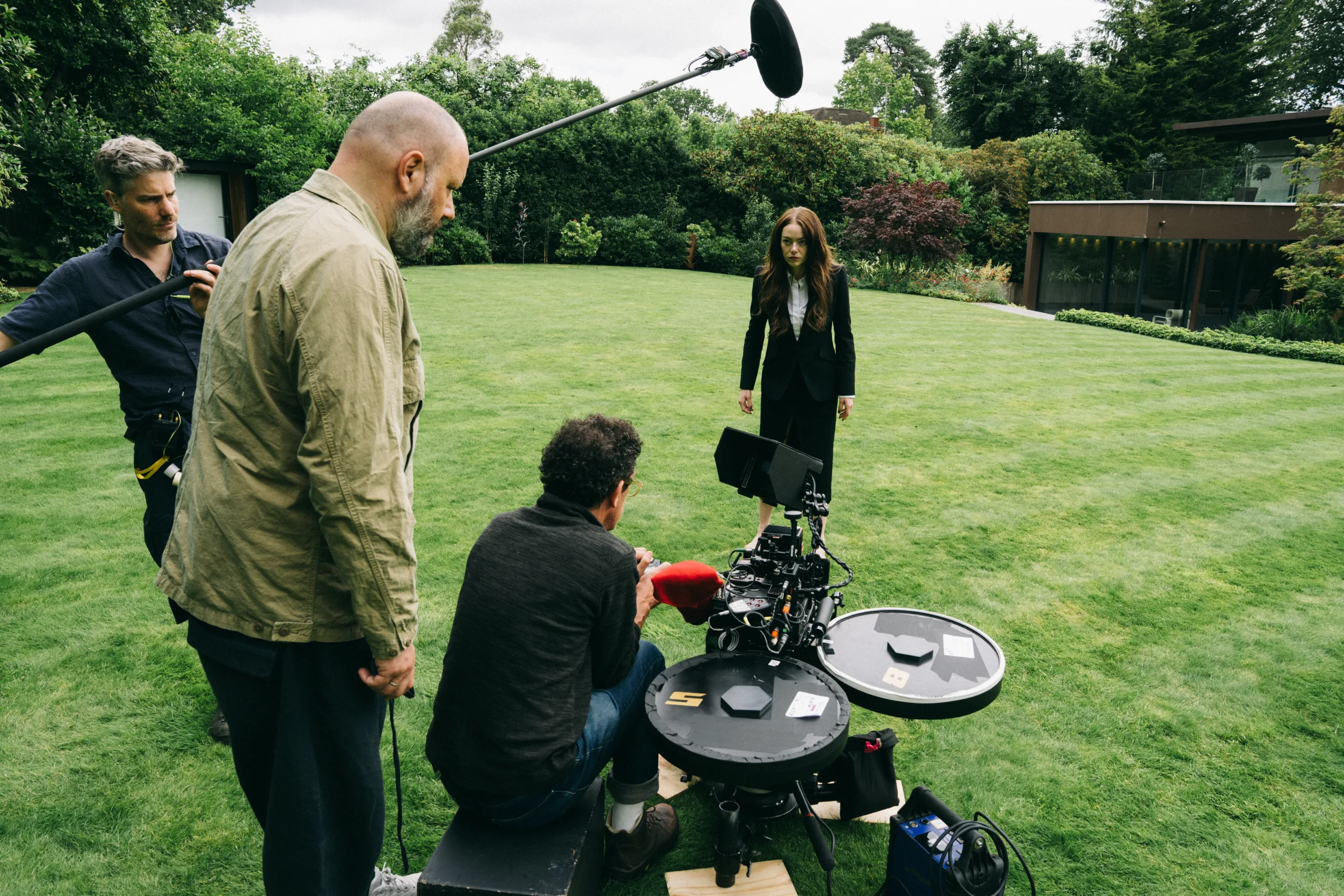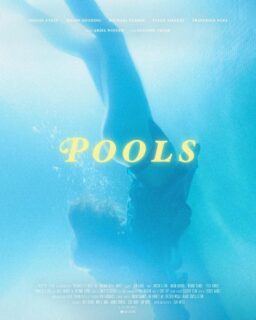To say that “Bugonia” is Yorgos Lanthimos’ bleakest film to date would be noteworthy given that from his very first film, “Kinetta,” the Greek director has crafted drama out of humanity’s worst impulses. The film focuses on Teddy (Jesse Plemons) and his cousin, Donny (Aidan Delbis), who swiftly capture Michelle Fuller (Emma Stone), the CEO of a major pharmaceutical company. Having surfed the dark recesses of the web, consumed a steady diet of conspiracy theories, and done their own “research,” Teddy is convinced that Michelle is an alien from the Andromeda species and is using her position of power to hasten humanity’s destruction. By torturing her for information so the duo can gain access to the Andromedan mothership, Teddy believes, “We’re saving Earth so it will be a good place to live again.”
Throughout the film, it’s unclear whether Teddy and Don have stumbled onto a universal conspiracy, or if they’ve simply deluded themselves to avoid dealing with the pain of their lives. The questions they wrestle with buzz around in their minds like the winged insects they care for: How much do we have to own up to when late-stage capitalism has limited our choices? Is violence an adequate vessel to hold our rage? How much are we allowed to blame the world? Right down to its ending, “Bugonia” argues that the only thing humanity is worthy of inheriting is our own destruction.
Lanthimos, once again, never shreds an iota of his facetious proclivities even as he unspools this depressing tale. The most banal, commonplace shots (mainly of a raggedy Plemons biking frantically between his home and the hardware store) get paired with a histrionically operatic score courtesy of Jerskin Fendrix, returning from “Poor Things” and bringing the same madcap energy. And the use of wide shots makes it all feel like something is watching us, waiting in the wings of our corporate offices, unkept foliage, and peeling wallpaper in order to abduct.
Even the film’s title references the core ideas around misinformation. It comes from a Greek belief that bees would spawn from the decaying carcasses of young bulls. Yet as the research shows, it’s not bees that would take refuge in a dead animal but drone flies, which are also gold and black, and thus people might have assumed they were bees.
“Bugonia” is a film that’s designed to always keep you guessing about who is telling the truth, and for the crew involved, hopefully, it creates a hunger for better narratives. “Teddy is someone who, like a lot of us, has not been told a better story that’s true from the powers that be,” said screenwriter Will Tracy, in reference to the character’s palpable rage.
Over Zoom, Lanthimos and Tracy shared about some of their favorite Korean films, how they see themselves as stewards of stories that people often get lost in, and what went into the film’s tragic and beautiful ending.
This conversation has been edited and condensed for clarity. It contains mild spoilers.

Given that “Bugonia” is a remake of the Korean film “Save the Green Planet,” I’m wondering what role Korean cinema has played in either of your cinematic lives. Were there any projects that have been meaningful to your formation as artists?
Yorgos Lanthimos: The funny thing is that I didn’t know about [Jang Joon-hwan’s] film. It was a great thing for me because I entered the process by receiving a great script that Ari Aster and Lars Knudsen developed with Will. It was a gift and a clean slate to get this great script to be involved in. What about you, though, Will?
Will Tracy: Ari Aster would probably do a much better job answering this question because he felt that I might find something in the premise of the original film that would be quite adaptable for a new and different kind of movie set in contemporary America.
YL: I will say that I was on the jury in Cannes when we awarded the Palme d’Or to “Parasite.”
WT: Well, there you go.
YL: It’s a great film which we all loved; it was a unanimous decision right away.
WT: “Burning,” “Memories of Murder,” … there are lots of Korean movies of recent vintage that I love.
YL: I’d also name the cinema of Park Chan-wook.
“Bugonia” reminded me most of “Dogtooth” as both films explore the breakdown of language, how our understanding of the world is shaped by the ways we define our words, and those words can be exploited by people in power. What draws you to this theme time and time again?
YL: In whatever story I tell, I’m always interested in the ways people’s interactions with themselves or others affect their nature. I try to create a structure and situations where I can stretch characters and reveal more profound things about humans and the way they understand each other and communicate through these extremities. Obviously, language is a big part of that, and exactly for the reason you mentioned, people can speak the same words but mean different things. Especially with the advances of technology, the pace at which we consume words can make meaning so abstract.
We see the collapse of meaning in the scenes with the police officer, Casey (Stavros Halkias), and Teddy. The two talk around what happened without confronting it head-on.
YL: I think the line Casey says is akin to “Sorry for whatever went down.” Not making what happened explicit was something that was changed from the script.

In that sense, I’d be curious how you two think through stewardship of your platform as storytellers. Watching the film–at least for the first viewing–I was tempted to write off Teddy as delusional and that he had created an elaborate story to distract himself from the real pain in his life. People can numb, distract, and hide themselves in the shadow of cinema; do you two reflect upon the power you hold as architects of this medium?
WT: I hadn’t thought of that. Hopefully, the movie doesn’t feel prescriptive, or it gives off this impression that it has all the answers. I think in Teddy’s case, he’s someone who has created a story, which is, by the way, not entirely untrue–but I think he’s someone who, like a lot of us, has not been told a better story that’s true from the powers that be.
There’s that scene where Teddy and Michelle are arguing in the basement, and Michelle asks to have a “dialogue,” and Teddy snaps at her. I think maybe I wrote that out of a feeling after reading countless pieces with titles like “What We Talk About When We Talk About Universal Healthcare.” There’s a lot of talking, but nothing actually happens. The “talking” itself then becomes the point, as does the inaction; that’s depressing and confusing for someone who comes from a less advantaged situation like Teddy. He’s been abused by the system that keeps talking without doing anything–or at least doing anything that’s helping him in some way.
YL: In my approach to filmmaking, when I’m structuring my story, I always try to allow for space for audiences to connect the dots for themselves, whether it revolves around the plot or the motivations and background of a character. Before you asked your question, I hadn’t thought of that, but weirdly, “Bugonia” is the perfect film for people to try their hand at this engagement. This is a film about people who are trying to convince each other of their worldview. As each layer is revealed about the characters, who you believe in a given situation changes. You find yourself trying to figure out where you stand throughout the entire film. So when you ask about stewardship, I think the structure I’ve created has allowed the audience to be very personally engaged and bring their own baggage into the film. I’m inviting them to bring themselves into this story and to think and perceive about this ever-shifting situation within the narrative.
What went into crafting the moments you wanted to include in that final sequence?
YL: From the beginning, the point of that sequence was to focus on intimacy. There could have been thousands of scenes that we could have included. It was really difficult to edit them down. Even after shooting them, we had ideas for more. It ultimately was a matter of practicality; there were only so many scenes we could include and shoot. The drive, as you shared, though, was to avoid the cliche of showing the world through huge monuments and vistas. There are some, but they’re done in a particular manner. I was trying to show the breadth of humanity: what are the good things that are lost, but also the bad things that are lost.
“Bugonia” is in limited release now, wider on October 31.












